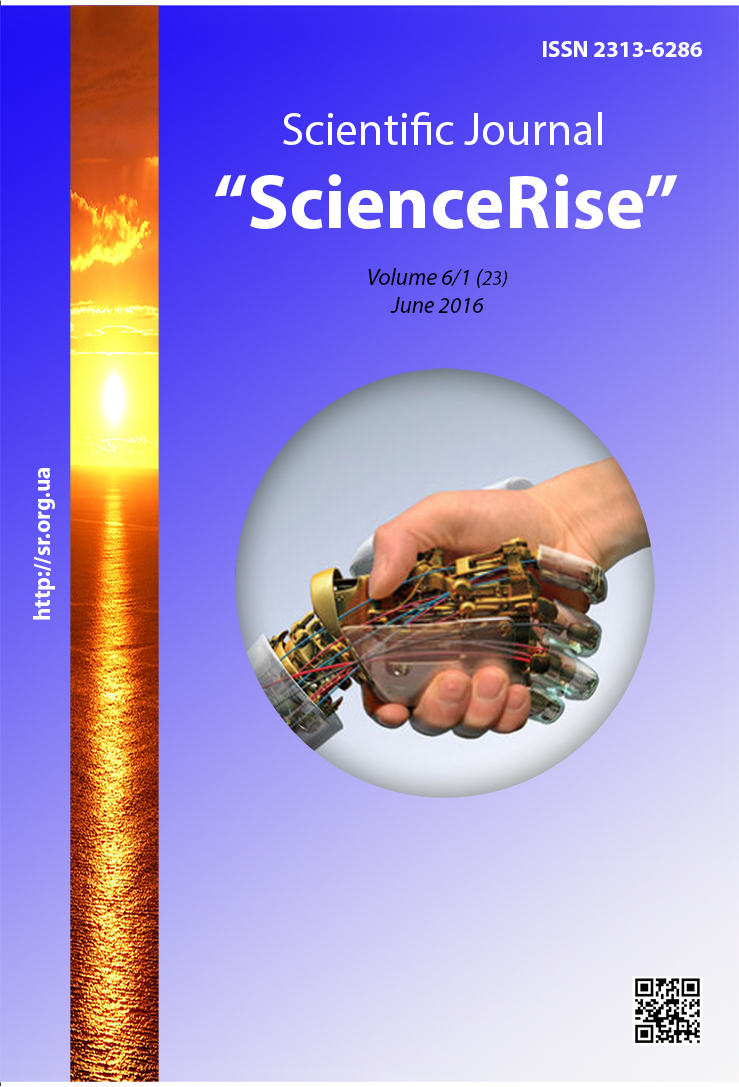Mechanisms of idiomatic transformations creating in contemporary english advertising discourse
DOI:
https://doi.org/10.15587/2313-8416.2016.72031Keywords:
advertising discourse, phraseological transformations, semantic transformations, structural-semantic transformationsAbstract
This article deals with phraseological transformations in English advertising discourse. It was determined that all phraseological transformations can be divided into two types: semantic and structural-semantic. Semantic transformations are formed by mechanisms of dephraseologisation and dual actualization. Structural-semantic transformations are made up by components expanding of original set expressions which realized due to enlargement and wedging, reduction of compositional component by “truncation” and substitution of components
References
Kuznyeczova, G. V. (2008). Strukturno-semanty`chna variaty`vnist` frazeologichny`x ody`ny`cz` v anglomovnomu xudozhn`omu dy`skursi: kognity`vny`j i pragmaty`chny`j aspekty` (na materiali tvoriv bry`tans`ky`x ta amery`kans`ky`j avtoriv XX – XXI stolit`) [Structural-semantic variations of phraseological units in English art discourse: cognitive and pragmatic aspects (on the pieces of work) of American and British authors of ХХ – ХХІ centuries)]. Donetsk, 25.
Derev'yanko, V. I. (2012). Substy`tuciya komponentiv yak ody`n iz vy`div transformaciyi frazeologizmiv (na materiali ches`koyi ta ukrayins`koyi mov) [Componential substitution as the basic model of phraseological transformations]. Komparaty`vni doslidzhennya slov'yans`ky`x mov i literature, 18, 43–50.
Kulikova, E. V. (2009). Reklamnyiy tekst: Lingvisticheskie priemyi vyirazitelnosti [Advertising text: Linguistic expressive devices ]. Vestnik Nijegorodskogo universiteta im. N. I. Lobachevskogo, 6 (2), 276–282.
Martinez, F. M. (2006). Occasional Phraseological Synonymy. International Journal of English Studies (IJES), 6 (1).
Ifill, T. Seeking the Nature of Idioms: A Study in Idiomatic Structure. Available at: https://www.swarthmore.edu/sites/default/files/assets/documents/linguistics/2003_ifill_tim.pdf
Abdulina, A. R., Ayupova, R. A., Zholobova, A. O., Zalyaleeva, A. R., Karimova, S. G., Safina, R. A. et. al; Arsenteva, E. F. (Ed.) (2009). Kontekstualnoe ispolzovanie frazeologicheskih edinits: kollektivnaya monografiya [Contextual use of phraseological units: multi-authored monograph]. Kazan, Tataric print house «Heter», 168.
Xoroz, N. S. (2008). Transformaciyi frazeologizmiv u tekstax suchasny`x xorvats`ky`x gazet [Phraseological transformations in the contemporary Croatian newspapers]. Kyiv, 245.
Kunin, A. V. (2005). Kurs frazeologii sovremennogo angliyskogo yazyika [The course of phraseology of contemporary English]. Dybna: Feniks+, 488.
Free Merriam-Webster Online Dictionary: An Encyclopedia Britannica Company. Available at: http://www.merriam-webster.com/
Cook, G. (2006). The Discourse of Advertising. London and New York: Routledge, 256.
Downloads
Published
Issue
Section
License
Copyright (c) 2016 Olga Makedonova

This work is licensed under a Creative Commons Attribution 4.0 International License.
Our journal abides by the Creative Commons CC BY copyright rights and permissions for open access journals.
Authors, who are published in this journal, agree to the following conditions:
1. The authors reserve the right to authorship of the work and pass the first publication right of this work to the journal under the terms of a Creative Commons CC BY, which allows others to freely distribute the published research with the obligatory reference to the authors of the original work and the first publication of the work in this journal.
2. The authors have the right to conclude separate supplement agreements that relate to non-exclusive work distribution in the form in which it has been published by the journal (for example, to upload the work to the online storage of the journal or publish it as part of a monograph), provided that the reference to the first publication of the work in this journal is included.

